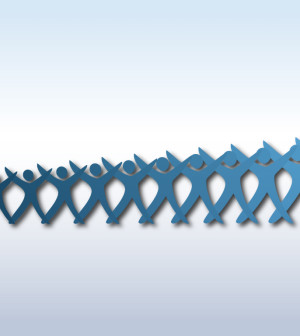- Could Your Grocery Store Meat Be Causing Recurring UTIs?
- Are You Making This Expensive Thermostat Error This Winter?
- Recognizing the Signs of Hypothyroidism
- 10 Strategies to Overcome Insomnia
- Could Artificial Sweeteners Be Aging the Brain Faster?
- Techniques for Soothing Your Nervous System
- Does the Water in Your House Smell Funny? Here’s Why
- Can a Daily Dose of Apple Cider Vinegar Actually Aid Weight Loss?
- 6 Health Beverages That Can Actually Spike Your Blood Sugar
- Treatment Options for Social Anxiety Disorder
Childhood Cancer Survivors Often Feel Older Than Their Years

Surviving a childhood cancer can take a toll on health, and new research shows that young adults who’ve been through the ordeal often feel aged before their time.
“Our findings indicate survivors’ accelerated aging, and also help us understand the health-related risks associated with having had cancer as a child,” said study senior author Dr. Lisa Diller. She is chief medical officer of Dana-Farber/Boston Children’s Cancer and Blood Disorders Center.
“What’s encouraging is that the lower quality-of-life scores are associated with chronic disease after treatment, not with a history of pediatric cancer itself,” Diller explained in a Dana-Farber news release.
The researchers studied data on thousands of childhood cancer survivors in the United States. Among 18- to 29-year-olds, overall health-related quality-of-life scores were similar to those of adults in the general population in their 40s, the investigators found.
The more chronic health problems childhood cancer survivors had, the lower their health-related quality-of-life score, according to the study.
The findings were published April 21 in the Journal of the National Cancer Institute.
Previous research has shown that childhood cancer survivors are at increased risk for heart disease, lung disease, infertility, cancers and other chronic conditions. These are mainly associated with treatments such as chemotherapy, radiation and surgery, the study authors noted.
“This research provides an easily accessible way to compare adult survivors of childhood cancer to the general population, in terms of their health-related quality of life, which normally declines as people age,” Diller said.
“If we can prevent treatment-related conditions by changes in the therapy we use for the cancer, then childhood cancer will become an acute, rather than a chronic, illness,” Diller concluded.
Reviewing one study of more than 7,000 pediatric cancer survivors, the researchers found only 20 percent had no chronic conditions.
More information
The American Cancer Society has more on cancer in children.
Source: HealthDay
Copyright © 2026 HealthDay. All rights reserved.










